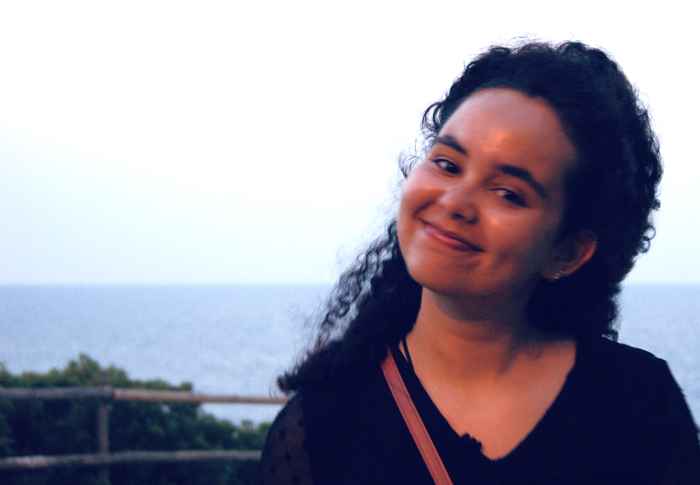'There is a strong focus on contemporary issues. Topics, such as migration, climate change, and inequality, are addressed during the lectures.'

Why did you choose this study programme at UvA?
'I chose the European Policy track at the UvA because it is a unique programme that is not offered anywhere else in the Netherlands. In addition, I found it interesting that the study falls under the Faculty of Humanities and that there is a lot of freedom of choice within the study regarding electives and potential internships. Finally, I have chosen specifically for this track within the broad degree of European Studies because of my interest and academic background in policy processes and how they can both be explained and possibly improved.
I did a Bachelor’s in Public Governance at Tilburg University, during which I mainly focused on (national) governmental policy processes. I missed the focus on European (external) relations and more concrete cases, such as recent political developments both within and outside of Europe. During my exchange in Bilbao, I realised that I would like to do more with this during my Master’s degree, preferably also in an international environment. This programme is therefore a good addition to my previous academic focus.'
What are your plans once you are finished with the study programme?
'I will continue studying at the UvA after completing my Master’s in European Policy. In September, I will begin with a Master’s in Public Policy and Governance (part of MSc Political Science). I hope to deepen my understanding of the political context surrounding European policy, which is a topic I have become very interested in during my current Master's programme. Additionally, I would very much like to do an internship abroad to gain work experience in another country. I found it inspiring to see that European Policy students came from all sorts of countries and that many students gain more experience after their studies by working or studying abroad or doing an internship. In any case, I would like to work for the government as a policy officer or otherwise for an NGO.'
What do you like most about your study programme?
'What I liked most about this Master’s programme is its small size and the connections that you develop with both your fellow students and your teachers. You work together a lot during the tutorials. Moreover, I also found the study trip to Brussels a very enjoyable and educational experience. During this trip, we gained more insights into the possibilities of working in Brussels and the course of business there. Furthermore, it was also a useful trip since we were able to conduct interviews for our Master's theses there. Finally, it was a nice way to spend some time with your fellow students outside of your studies.'
What do you think of the contents of the study programme?
'I really like how everyone can find something interesting within the curriculum. We come from different backgrounds — law, history, political science, European Studies, … — but we can all explore new fields of research in addition to our own. There is a wide choice of electives and even if you want to go in a different direction, you have the option to pursue a course at another faculty.'
How does your study programme connect with the current/modern times/society?
'Throughout this Master's, there is a strong focus on contemporary issues. Many topics, such as migration, climate change, and (gender) inequality, are addressed during the lectures. In addition to the fact that lecturers often have a wide range of topics prepared for the tutorials, students are also encouraged to share their own developments relevant to the study programme or course. Moreover, you also have a lot of freedom to explore your own interests in the research papers that you have to write for most classes. I have done this myself by focusing on issues of inequality, such as the treatment of non-white versus white refugees and climate refugees. For my thesis, I am now focusing on the marginalised and stigmatised position of sex workers.'
What kind of courses do you take during this programme?
'Apart from the mandatory courses, European Policy offers a lot of space for electives. At the beginning of the year, I chose subjects that would allow me to learn a lot, such as European external affairs and European climate change policy. During the second semester, I began to focus more on my personal interests and chose the courses Which lives matter and Gender, Race and Power in European Security. In addition to these, I also took the mandatory courses that every student enrols in during the European Policy track, such as Cultures of European Governance and Skills Seminar Brussels. Through these shared courses, you really feel a sense of community within your track, which is very nice.'
How is the atmosphere at your study?
'The atmosphere is very cozy. There are many international students which is particularly nice when studying European Studies, as it allows for interesting discussions on transnational issues, where everyone can offer perspectives from their own cultural background. This adds a lot of depth to our discussions. Additionally, the diversity of your peers’ educational backgrounds and expertise makes you look more critically at your own "way of thinking" when approaching issues. It is easy to get tunnel vision with a particular degree, but the diversity and interdisciplinarity of this track encourages you to learn to embrace alternative approaches. We therefore learn a great deal not only from the lecturers, but also from each other.'